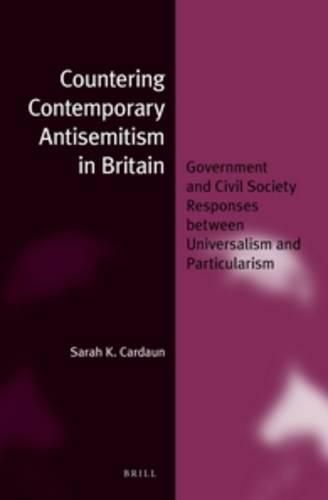Readings Newsletter
Become a Readings Member to make your shopping experience even easier.
Sign in or sign up for free!
You’re not far away from qualifying for FREE standard shipping within Australia
You’ve qualified for FREE standard shipping within Australia
The cart is loading…






In Countering Contemporary Antisemitism in Britain, Sarah Cardaun presents a thorough scholarly analysis of responses to present-day antisemitism in the UK. Examining discourses and practical measures adopted by the British government, parliamentary groups, and non-governmental organisations, the book provides a comprehensive overview of different approaches to addressing anti-Jewish prejudice in Britain. It offers a critical perspective on universalistic interpretations which have traditionally characterised responses towards it in various fields, such as Holocaust remembrance and education. Against this background, the study highlights the importance of organisations with a more specific focus on counteracting hostility towards Jews, and the role civil society can play in the fight against the new antisemitism. Overall, this book makes a significant contribution to the academic debate on contemporary antisemitism and to the vital but neglected question of how today’s resurgent anti-Jewish prejudice may be tackled in practice.
$9.00 standard shipping within Australia
FREE standard shipping within Australia for orders over $100.00
Express & International shipping calculated at checkout
In Countering Contemporary Antisemitism in Britain, Sarah Cardaun presents a thorough scholarly analysis of responses to present-day antisemitism in the UK. Examining discourses and practical measures adopted by the British government, parliamentary groups, and non-governmental organisations, the book provides a comprehensive overview of different approaches to addressing anti-Jewish prejudice in Britain. It offers a critical perspective on universalistic interpretations which have traditionally characterised responses towards it in various fields, such as Holocaust remembrance and education. Against this background, the study highlights the importance of organisations with a more specific focus on counteracting hostility towards Jews, and the role civil society can play in the fight against the new antisemitism. Overall, this book makes a significant contribution to the academic debate on contemporary antisemitism and to the vital but neglected question of how today’s resurgent anti-Jewish prejudice may be tackled in practice.